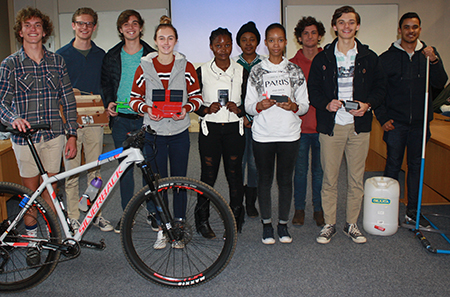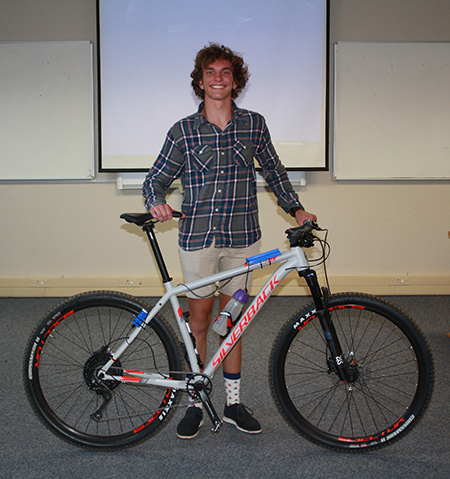The 2019 group of Xcel students are not only improving their Grade 12 Mathematics and Physical Sciences results, but are also gaining experience in the skill of problem-solving.
The North-West University’s (NWU’s) Xcel programme aims to prepare students for university studies, especially students aiming to study engineering. This is done by developing specific skills such as time and financial planning skills, design skills, creative thinking skills and practical hands-on skills.
The 2019 group also had to complete a CAD course, and one of the outcomes was to create innovative solutions for charging a cellphone without using electricity from the power grid.
CP Klopper, their lecturer, explains that they had to find an innovative way of producing electrical energy to power their phones in a situation where no electricity was available, e.g. during load shedding.
The students investigated various alternatives, and solutions that ranged from solar power, wind turbines, thermo-electric generators and even stored energy in the form of water tanks were proposed. The students also had to manufacture unique parts to make their invention work.
They made use of CAD software (Siemens NX) to produce systems that had to be well rounded and durable. An examination panel did a technical evaluation of each of their projects during their verbal presentation and practical demonstration of the projects.
Two students developed a system based on a thermo-electric generator. This technology works by generating electricity as long as a significant temperature difference to a substrate can be sustained. The electrical current is a function of the temperature difference. The students manufactured a housing for their device, and cooled one side of the substrate with ice and heated the other side with a candle. The phone charged well enough to enable the user to make an emergency call or catch up on social media.
Another student made use of light-sensitive resistors to program a solar tracking unit. This unit follows the sun as it moves through the sky during the day to provide the optimal angle between the sun and the solar panels and ensures the production of the maximum electrical power during the day. The programming and implementation were done with the aid of online resources, and the system was housed in a custom-designed enclosure designed within Siemens NX. The option to switch the microcontroller off and to divert all the power to the phone was also implemented for faster charging.
“We are excited and proud to see the level of commitment that each of the students displayed. This is where we sow the seeds for a promising and exciting career in engineering,” says Elza Hattingh, programme manager of the Xcel programme.

The 2019 group of Xcel students proudly display their incredible handmade charging devices.

Wesly van der Nest put his bicycle to good use in his “charge as you ride” project.
